Personalized Nutritional Counseling for Improved Health Outcomes
November 23, 2025
6 min

Introduction to Personalized Nutritional Counseling
What Is Personalized Nutritional Counseling?
Personalized nutritional counseling is a tailored approach to dietary guidance that considers individual health markers, genetics, lifestyle, and preferences. Unlike generic diet plans, it focuses on creating customized nutrition strategies to meet unique needs.
The Role of Registered Dietitians and Nutritionists
Registered Dietitians (RDs) and Registered Dietitian Nutritionists (RDNs) are highly trained professionals who deliver personalized counseling. They conduct thorough assessments including health history, dietary habits, and physical activity to develop medically sound and effective nutrition plans.
Health and Wellness Benefits
This individualized guidance helps manage chronic diseases, supports healthy weight, boosts energy, and promotes overall well-being. It empowers patients to make sustainable dietary changes, enhancing quality of life and motivating long-term healthy habits.
Scientific Foundations and Effectiveness of Personalized Nutritional Counseling

Genetic and Phenotypic Basis of Personalized Nutrition
Personalized nutrition tailors dietary advice based on individual genetic information, phenotypic data like blood glucose response, metabolic markers, and gut microbiome profiles. Genetic assessments often focus on single nucleotide polymorphisms (SNPs) related to lipid metabolism, cardiovascular health, obesity, and vitamin metabolism. Phenotypic flexibility, the body's ability to adapt to environmental stressors, also guides personalized dietary recommendations.
Evidence from Clinical Trials and Systematic Reviews
Multiple randomized controlled trials have investigated personalized nutrition's impact. Findings suggest some improvements in diet quality, such as enhanced personalized nutrition and salt intake and personalized nutrition and dietary fat quality, and modest benefits in reducing body weight, waist circumference, triglycerides, and blood glucose markers like HbA1c. Interventions using continuous glucose monitoring and microbiome data to tailor diets showed better adherence and health outcomes compared to standard population-based guidelines. However, results on weight loss, blood lipids, and quality of life are inconsistent.
Limitations and Future Research Directions
Limitations of personalized nutrition studies highlight limitations including inability to blind participants, high attrition rates, and mostly short-term intervention durations. Most studies derive from North America and Europe, limiting generalizability across diverse populations. The complex interplay between genes, diet, and other host factors may underlie the modest success observed so far. Future research in personalized nutrition should focus on larger, longer-term trials with detailed intervention descriptions and include culturally diverse cohorts to better elucidate personalized nutrition's potential benefits.
Personalized Nutritional Counseling in Chronic Disease and Musculoskeletal Health Management

How does personalized nutritional counseling help manage obesity, diabetes, and cardiovascular diseases?
Personalized nutritional counseling tailors dietary advice to individual biological responses, genetic makeup, and health status. Studies demonstrate that such counseling can effectively reduce body weight, BMI, body fat mass, and waist circumference in obese adults. It also improves metabolic markers like blood glucose, hemoglobin A1c, and triglycerides, contributing to better diabetes and cardiovascular disease management. This approach goes beyond standard dietary guidelines by integrating continuous glucose monitoring and genetic data to create optimally effective nutrition plans.
What are the applications of personalized nutrition for musculoskeletal health, including inflammation and pain management?
Personalized dietary strategies emphasize nutrients that support bone and muscle health, like calcium, vitamin D, protein, magnesium, and anti-inflammatory compounds. Nutritional counseling can reduce musculoskeletal inflammation and pain using natural anti-inflammatory foods and supplements such as omega-3 fatty acids, turmeric, and ginger. Tailored nutrition supports healing and joint health, reduces osteoarthritis progression, and promotes muscle maintenance during injury rehabilitation. Integration of dietary counseling with physical activity and weight management further enhances musculoskeletal outcomes.
What is the impact of personalized nutrition counseling on quality of life and metabolic health?
Individualized nutritional interventions significantly enhance quality of life by improving physical functioning, reducing fatigue, and alleviating symptoms like anorexia and gastrointestinal discomfort, especially in chronic conditions and post-surgical patients. They optimize nutrient intake, promote healthier eating habits, and improve energy levels and mood. Personalized approaches also positively influence cardiometabolic health, including beneficial shifts in gut microbiome composition, blood lipid profiles, and inflammatory markers, thus offering holistic benefits tailored to the individual's health profile.
Holistic and Practical Approaches in Personalized Nutrition Counseling

What are the principles of holistic nutrition and how is it integrated with lifestyle factors?
Holistic nutrition principles looks beyond just food intake, considering physical, emotional, mental, and spiritual aspects to promote whole-person wellness. This approach emphasizes nutrient-dense, mostly whole, unprocessed foods and recognizes how stress, relationships, and personal fulfillment impact health outcomes. Holistic nutrition counseling tailors interventions to address the interconnectedness of mind and body, helping individuals build resilience and improve overall vitality.
How are behavioral techniques like motivation and stress management used in nutritional counseling?
Behavioral strategies such as stress management in nutritional counseling, motivation enhancement, and effective communication are critical in guiding clients towards sustainable dietary changes. Techniques include supporting mindful eating practices, recognizing hunger cues, and providing ongoing encouragement. Digital tools in nutritional counseling can extend these supports, for example, through telehealth platforms or apps that monitor progress, helping individuals stay motivated while managing stress-related eating patterns.
How are dietary plans tailored to cultural and individual preferences?
Personalized nutrition counseling respects cultural background, food preferences, and lifestyle factors. Dietitians develop individualized plans that incorporate favorite foods, traditions, and practical considerations like budget and accessibility. Incorporating culturally relevant foods improves engagement and long-term adherence. For example, adopting whole-food plant-based diet approaches can be adjusted to fit specific tastes while promoting anti-inflammatory and nutrient-rich choices crucial for health.
These integrated, person-centered approaches empower individuals to make manageable changes that enhance well-being, improve chronic disease management, and support sustainable, healthful living.
Implementation and Delivery Methods of Personalized Nutritional Counseling

How is telehealth used to enhance personalized nutritional counseling?
Telehealth plays an increasingly vital role in delivering Telehealth nutrition services by enabling synchronous video consultations, asynchronous communications, and remote monitoring through wearable devices. This virtual approach enhances accessibility, especially for patients in remote or underserved areas. Tele-nutrition supports Personalized nutrition care plans by allowing dietitians to conduct comprehensive assessments, provide tailored advice, and track patient progress longitudinally without the need for in-person visits.
What role do team-based care models have in nutritional counseling?
Effective 5 A's framework in nutrition counseling often involves a collaborative, team-based nutrition counseling approach. This model integrates dietitians, medical providers, and other health professionals to collectively assess patient needs and develop culturally adapted, individualized dietary strategies. Such multidisciplinary coordination ensures dietary interventions align with broader medical care, maximizes patient engagement, and improves sustained adherence to nutrition plans.
Which assessment tools are utilized to tailor and evaluate interventions?
Assessment is crucial for personalized nutrition counseling and involves validated tools like REAP-S v.2 dietary assessment tool for dietary habits, Mini Nutritional Assessment usage for malnutrition risk, and continuous glucose monitors to tailor recommendations. Integration of these assessments into electronic health records allows data-driven interventions and systematic follow-ups. Continuous evaluation measures changes in diet quality, metabolic markers, and patient-reported outcomes to iteratively refine counseling strategies and optimize effectiveness.
Conclusion: The Future of Personalized Nutritional Counseling for Health
Personalized nutrition counseling offers significant benefits by tailoring dietary advice to individual genetics, health status, and lifestyle factors. This approach improves body composition, metabolic markers, and encourages sustainable eating habits, contributing to better chronic disease management and enhanced quality of life.
However, challenges remain, including inconsistent outcomes in some studies and the complexity of gene-diet interactions. Barriers such as limited accessibility, economic factors, and the need for culturally sensitive interventions must be addressed to maximize impact.
The importance of personalized care lies in its ability to consider the whole person—integrating physical, emotional, and cultural needs for optimal health outcomes. This patient-centered strategy empowers lasting lifestyle changes.
Continued research is essential to refine interventions, expand diverse population studies, and enhance technological tools like telehealth. Broader accessibility and interdisciplinary collaboration will be vital in advancing personalized nutrition as a cornerstone of holistic health care.
Recent articles

Inspiring Patient Success Stories from Chiropractic Clinics

Integrating Physiotherapy with Chiropractic Treatments
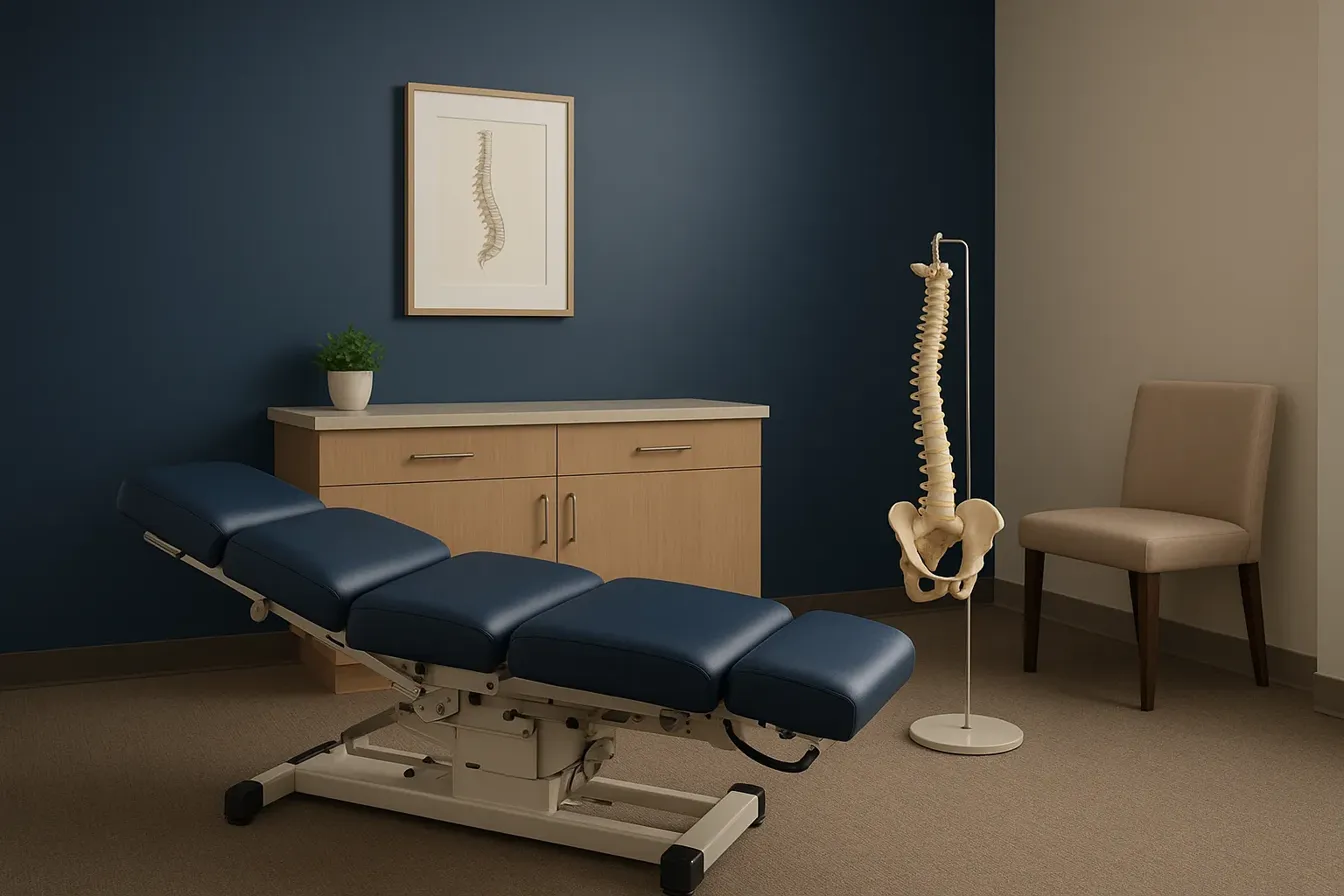
Corrective Exercise Routines for Chronic Pain Prevention

10 Corrective Exercises to Maintain a Healthy Spine and Relieve Pain

Exercise Strategies for Long-Term Pain Management

The Importance of Treating the Root Cause of Pain

Nutritional Support Strategies for Whole-Body Wellness

7 Essential Questions to Ask When Choosing Your Chiropractor

Identifying and Addressing Root Causes of Pain

Maintaining a Healthy Spine with Lifestyle Adjustments
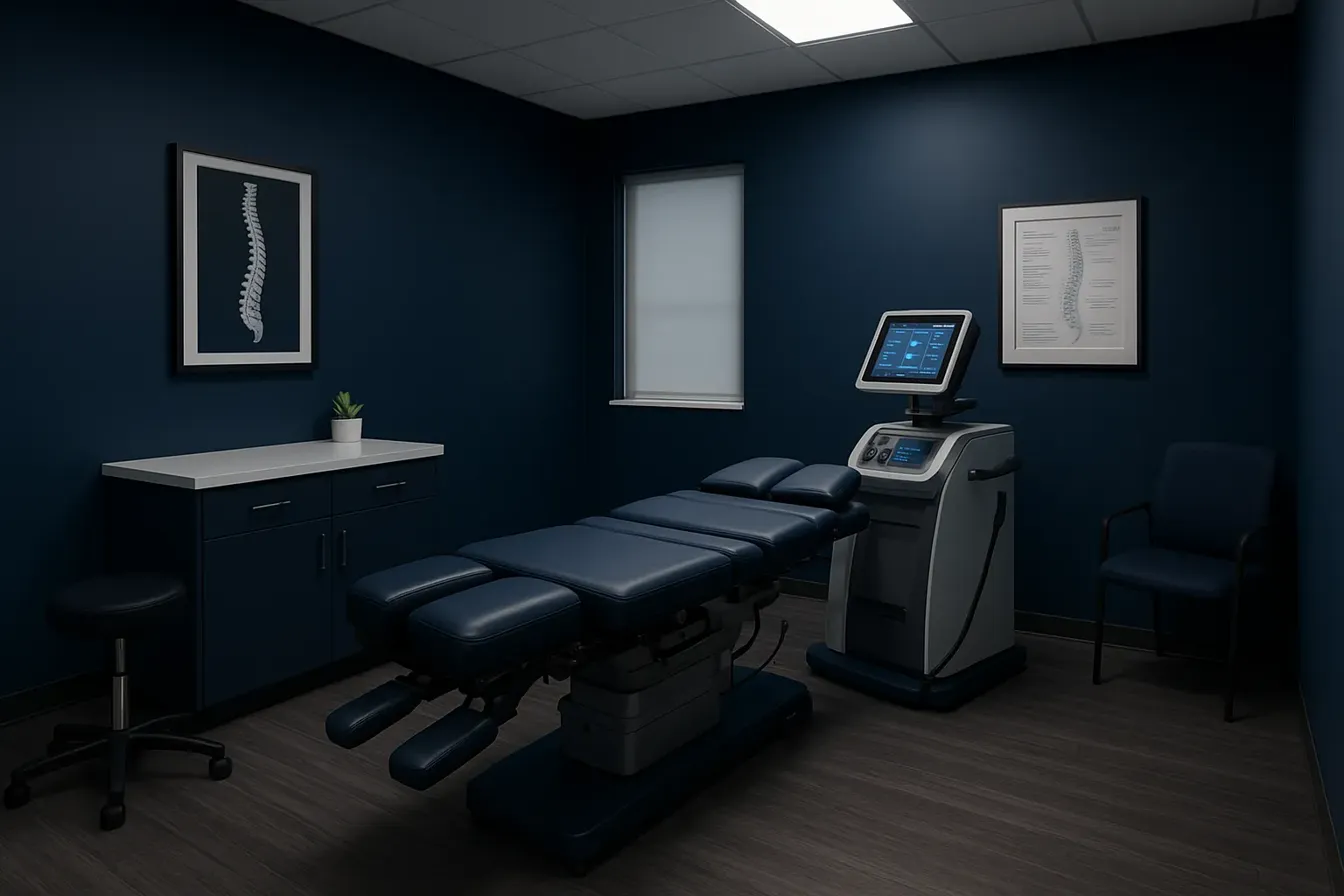
Sciatica Symptom Relief via Spinal Decompression

8 Reasons Why Addressing the Root Cause of Pain Is Crucial

Chiropractic Care’s Impact on Back Pain Recovery

Combining Physiotherapy with Chiropractic Care for Better Results

Inspiring Recovery: Chiropractic Patient Testimonials

Nutritional Counseling Tips for Optimal Wellness

Why Addressing the Root Cause of Pain is Crucial

Back Pain and Chiropractic Care: A Winning Combination

Chiropractic Care Benefits You Might Not Know

Exploring Holistic and Non-Surgical Treatments for Pain

Spinal Health: Lifestyle Tips for Everyday Wellness
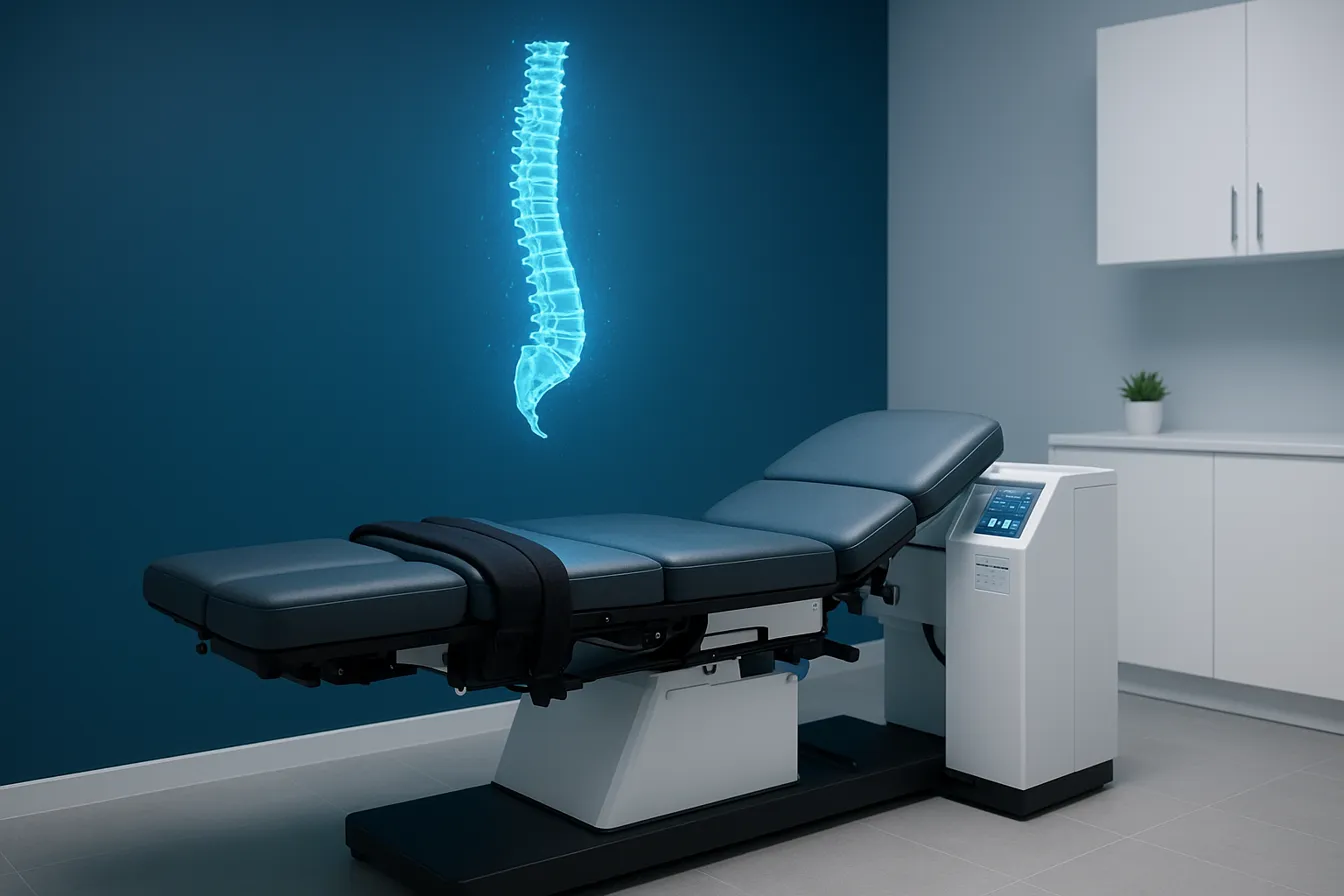
Spinal Decompression Therapy: Benefits and Applications
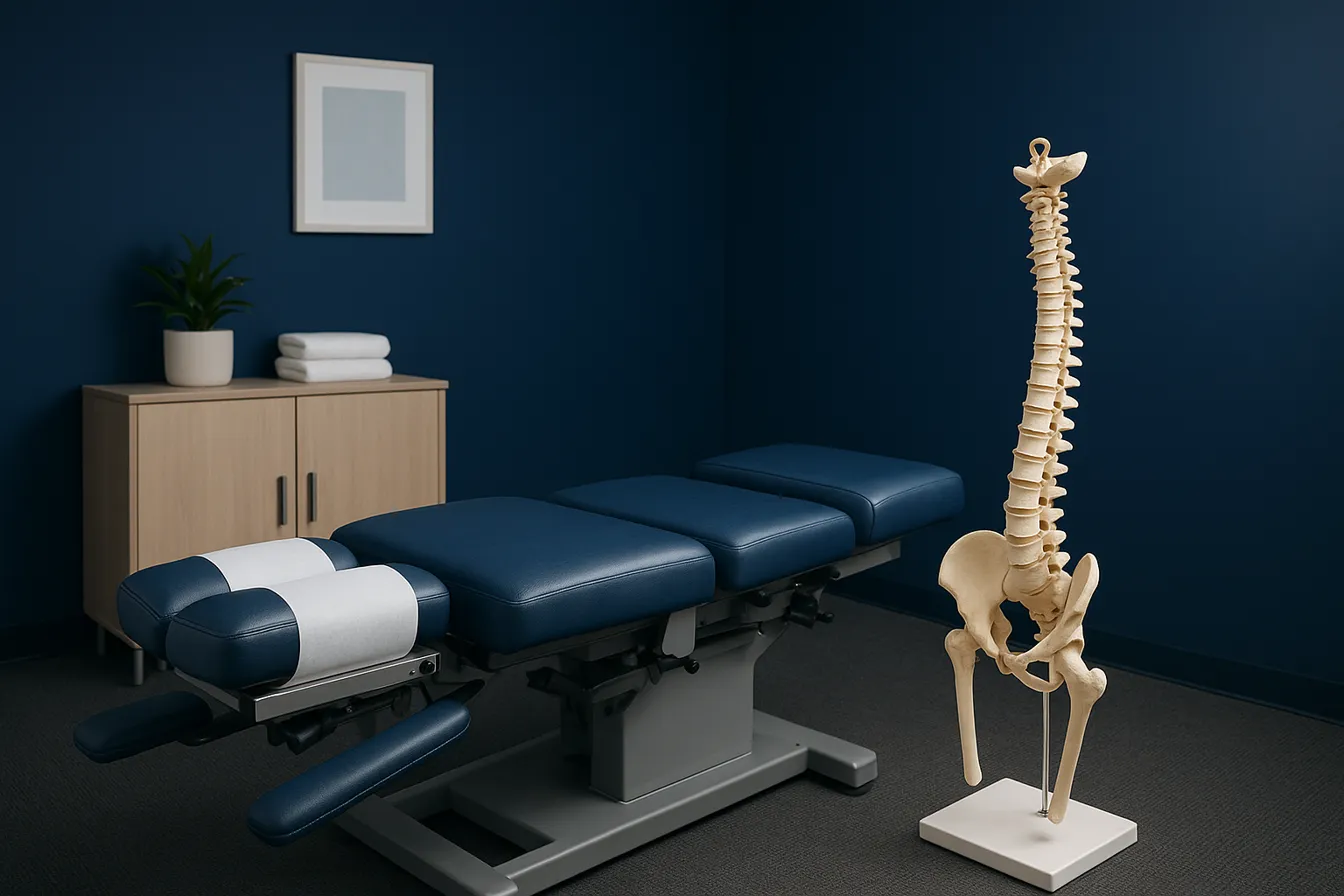
Holistic and Non-Invasive Spine Care Options
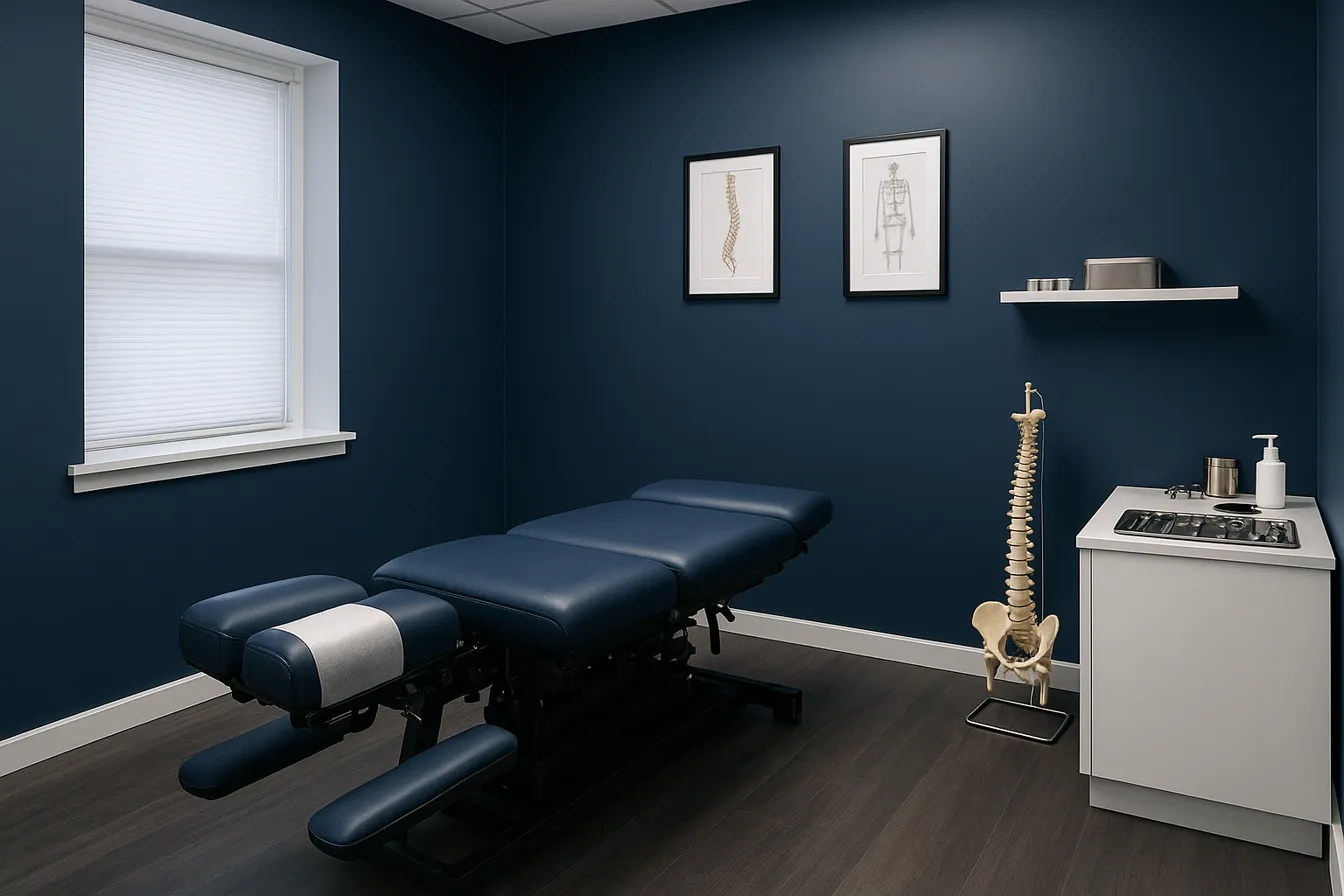
Everyday Lifestyle Advice to Keep Your Spine Healthy

The Significance of Treating Root Causes in Pain Therapy
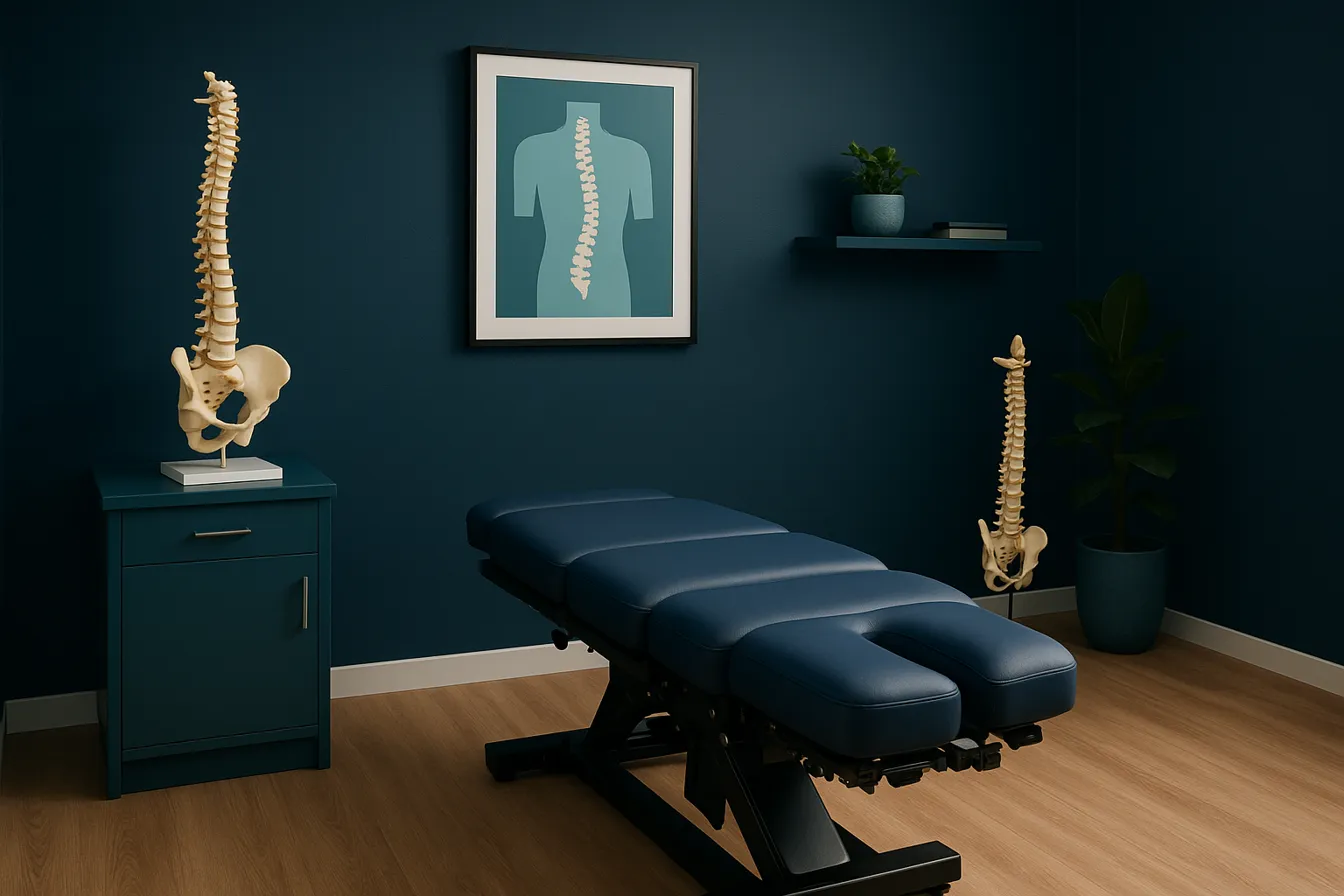
Best Corrective Exercises for Sustainable Pain Management

Addressing Underlying Causes of Pain for Long-Term Relief
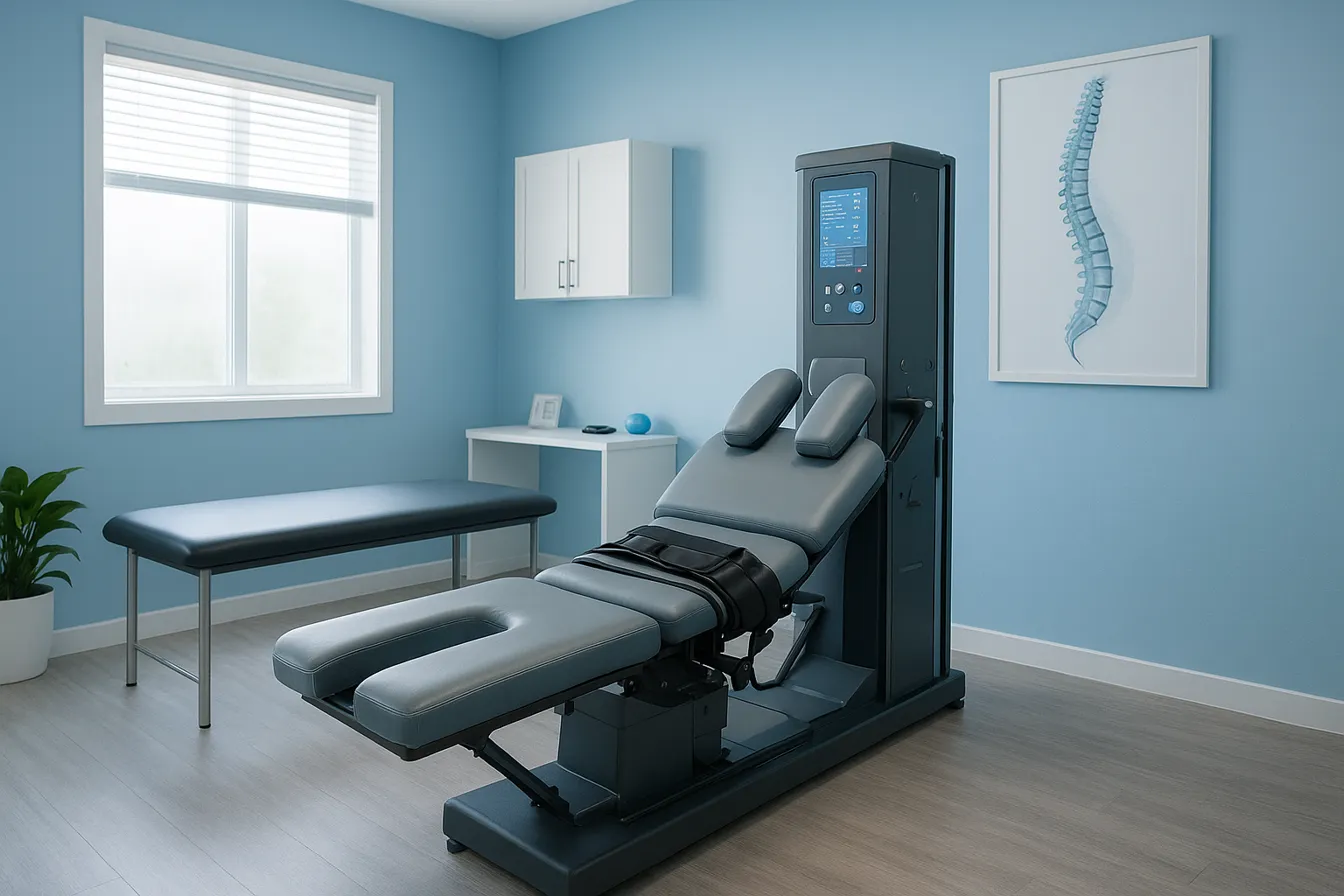
6 Key Benefits of Spinal Decompression Therapy for Sciatica Relief

How Nutritional Counseling Supports Spine Health and Recovery

The Role of Physiotherapy in Supporting Chiropractic Treatments

What Happens During Your First Visit to a Chiropractor?

Holistic and Non-Invasive Treatments: Alternatives to Back Surgery
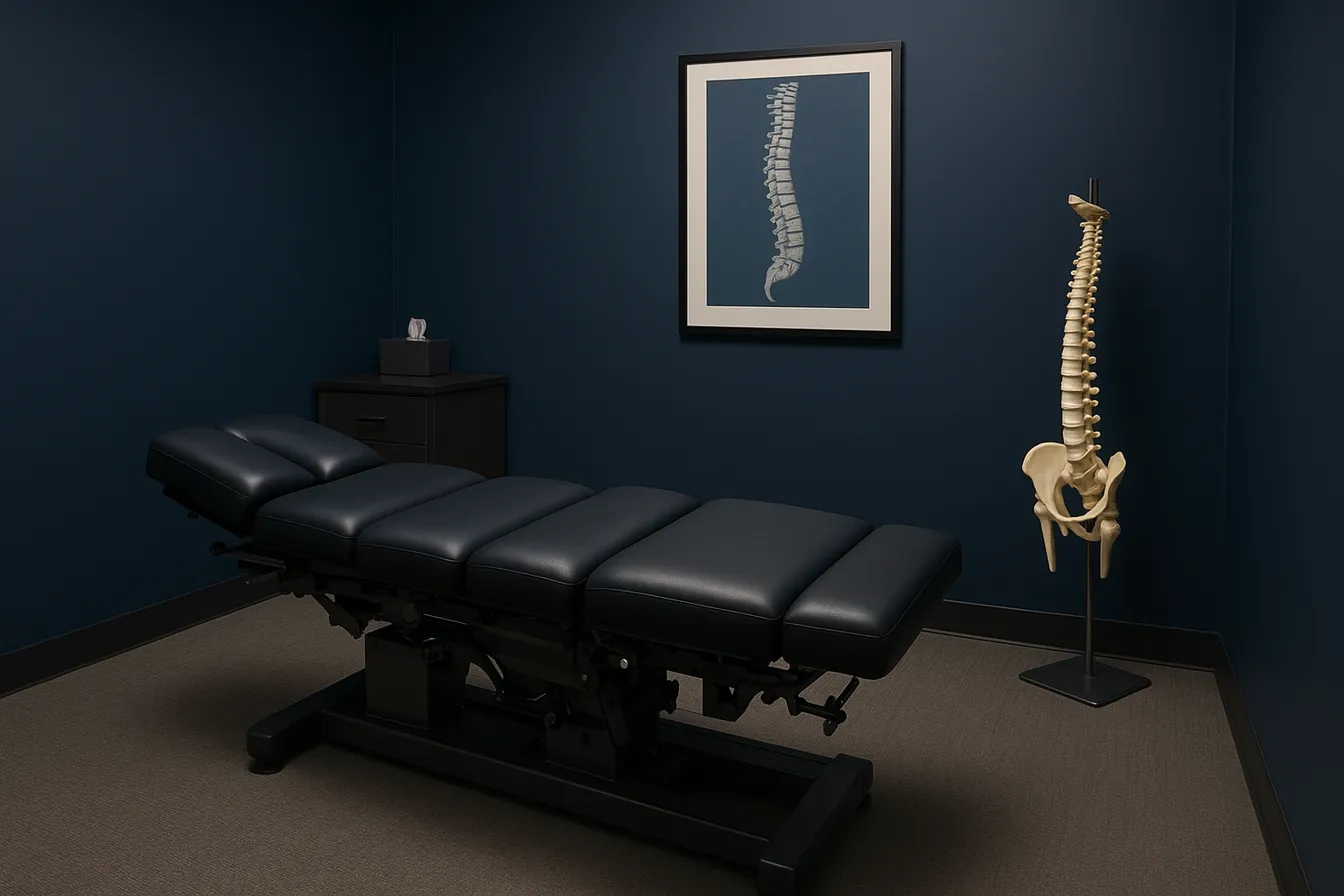
How Spinal Decompression Therapy Relieves Sciatic Nerve Pain
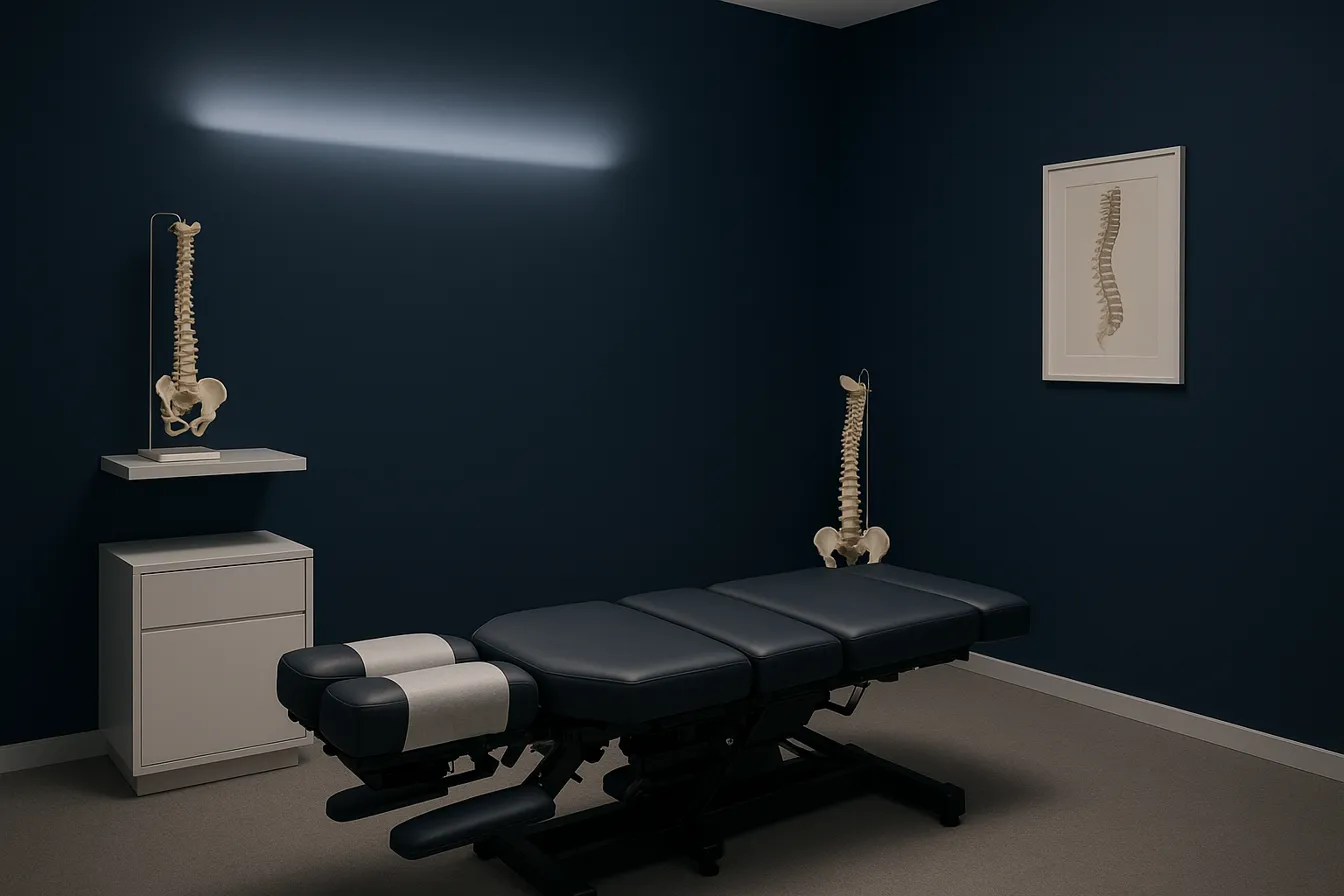
Real Patient Testimonials: Success Stories from Chiropractic Care

Understanding Spinal Decompression for Effective Sciatica Relief

What to Expect When Visiting a Chiropractor for the First Time
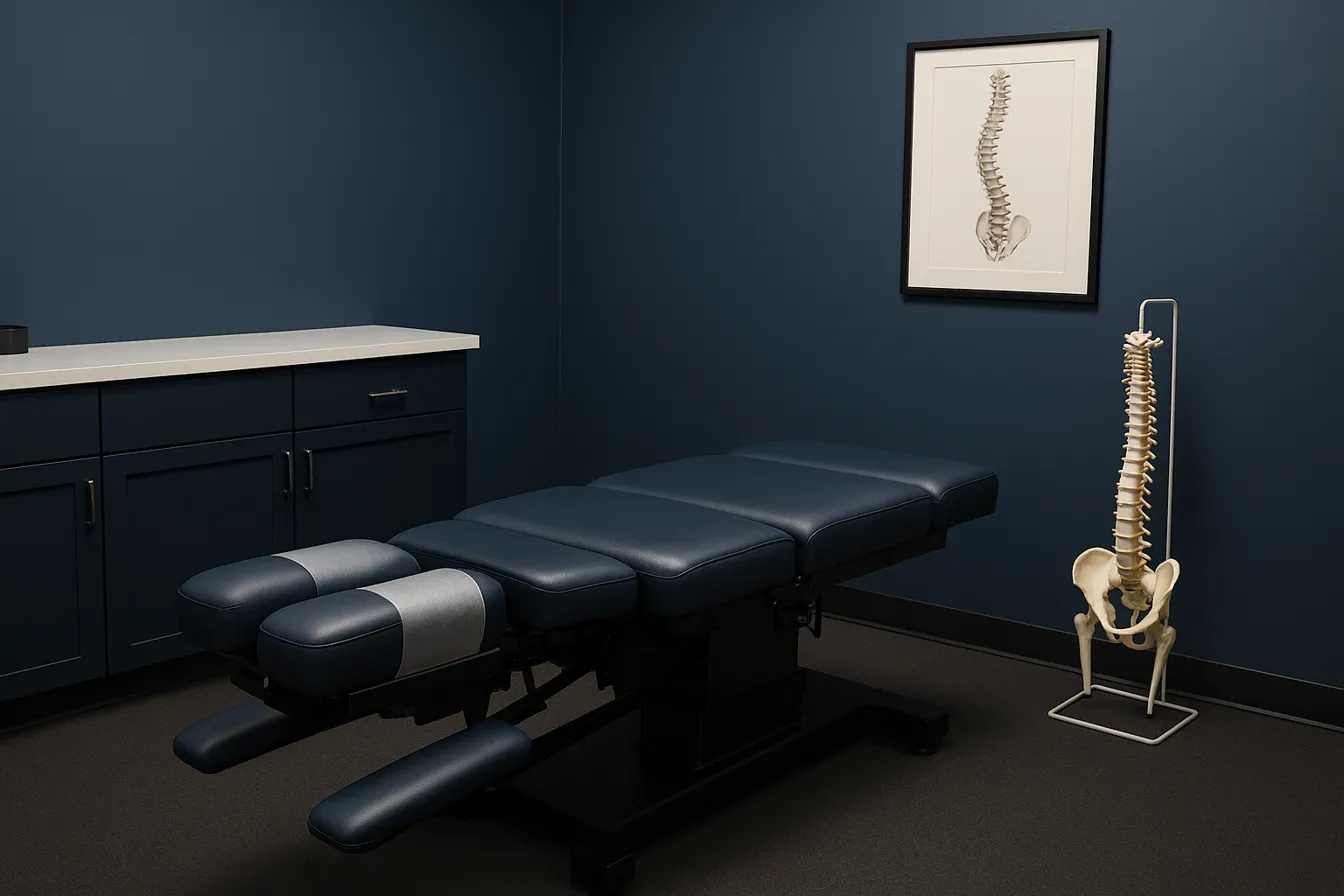
Benefits of Regular Chiropractic Adjustments for Back Pain Management

Patient Testimonials Highlighting the Benefits of Chiropractic Care

Corrective Exercise Routines Designed for Lasting Back Pain Relief

Lifestyle Recommendations for Sustaining a Healthy Spine

Nutritional Guidance to Support Spinal Function and Healing

Long-Term Corrective Exercises for Preventing Recurring Back Pain
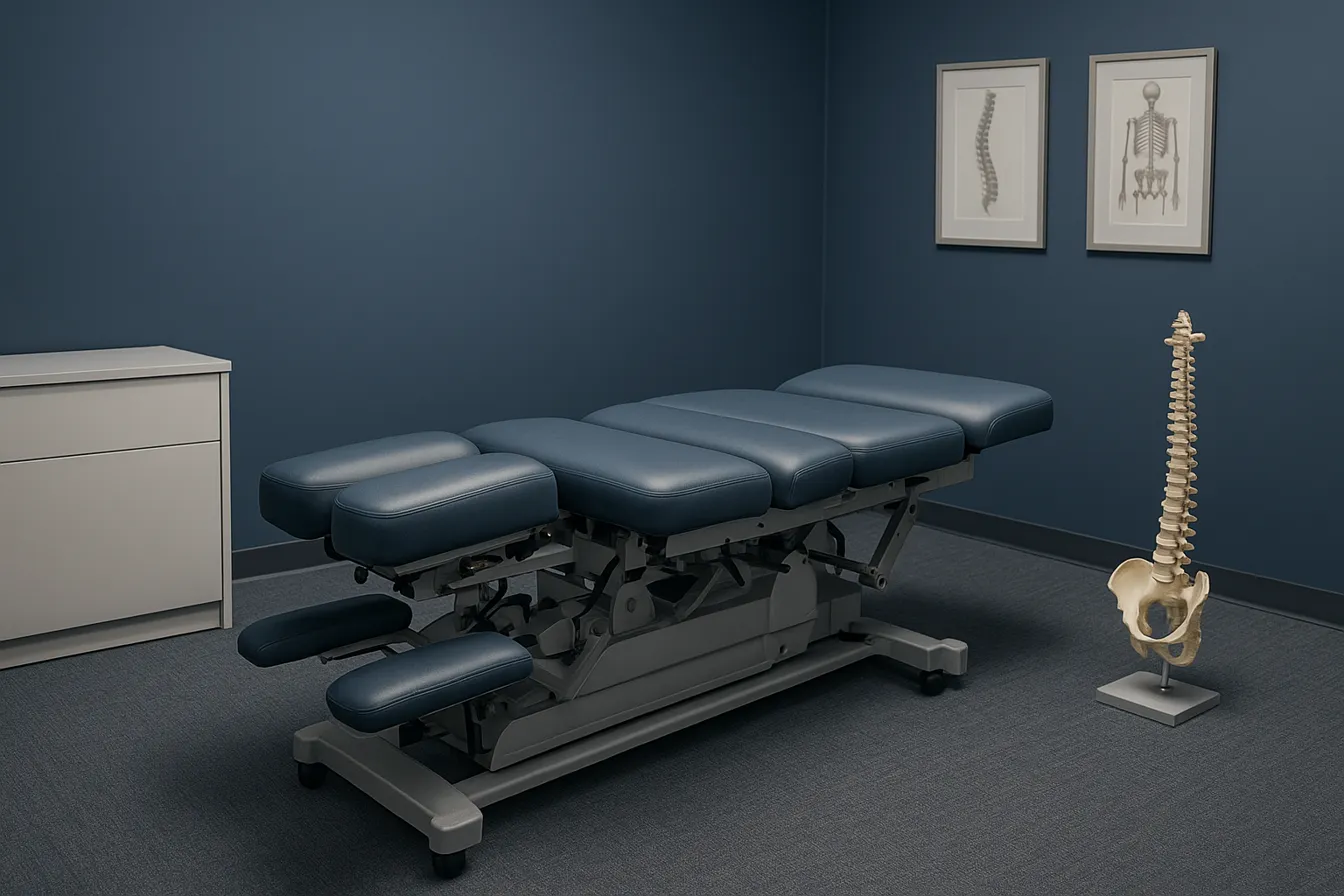
Spinal Decompression: What Sciatica Patients Should Know

Why Treating the Root Cause of Back Pain Is More Effective Than Symptom Relief

Nutritional Counseling Strategies for Spine Health Improvement

Top Benefits of Chiropractic Care for Chronic Back Pain Sufferers

Exploring Non-Surgical and Holistic Treatment Options for Spinal Conditions

Exploring Holistic and Non-Surgical Treatments for Back Pain Relief

Powerful Patient Stories: Chiropractic Care Transformations

Effective Spinal Decompression Techniques for Sciatica Sufferers

Holistic Alternatives to Surgery for Chronic Back and Sciatica Pain

5 Corrective Exercises to Achieve Long-Term Pain Relief
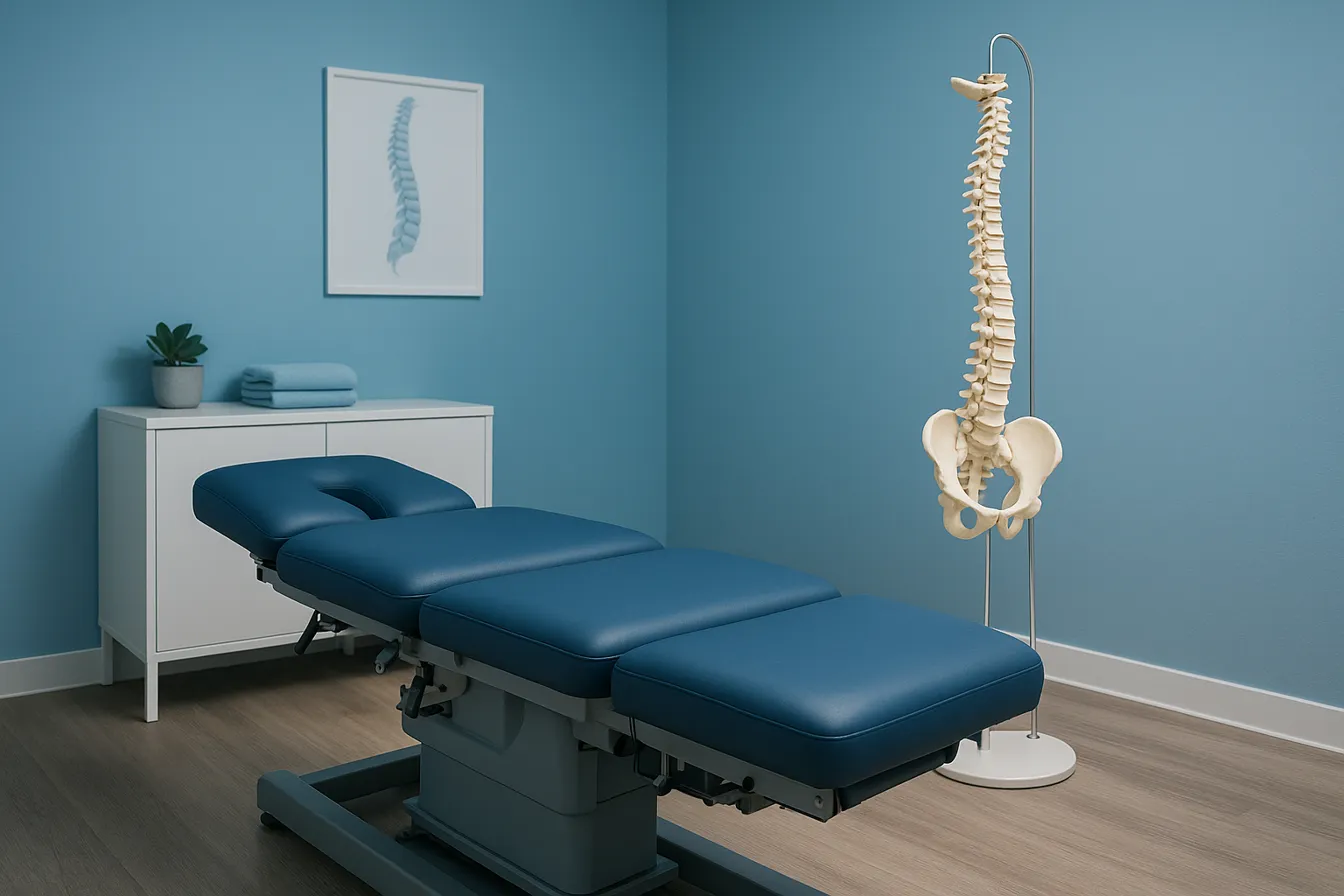
Effective Corrective Exercises to Combat Sciatica and Back Pain

How Spinal Decompression Therapy Alleviates Sciatica Pain Naturally
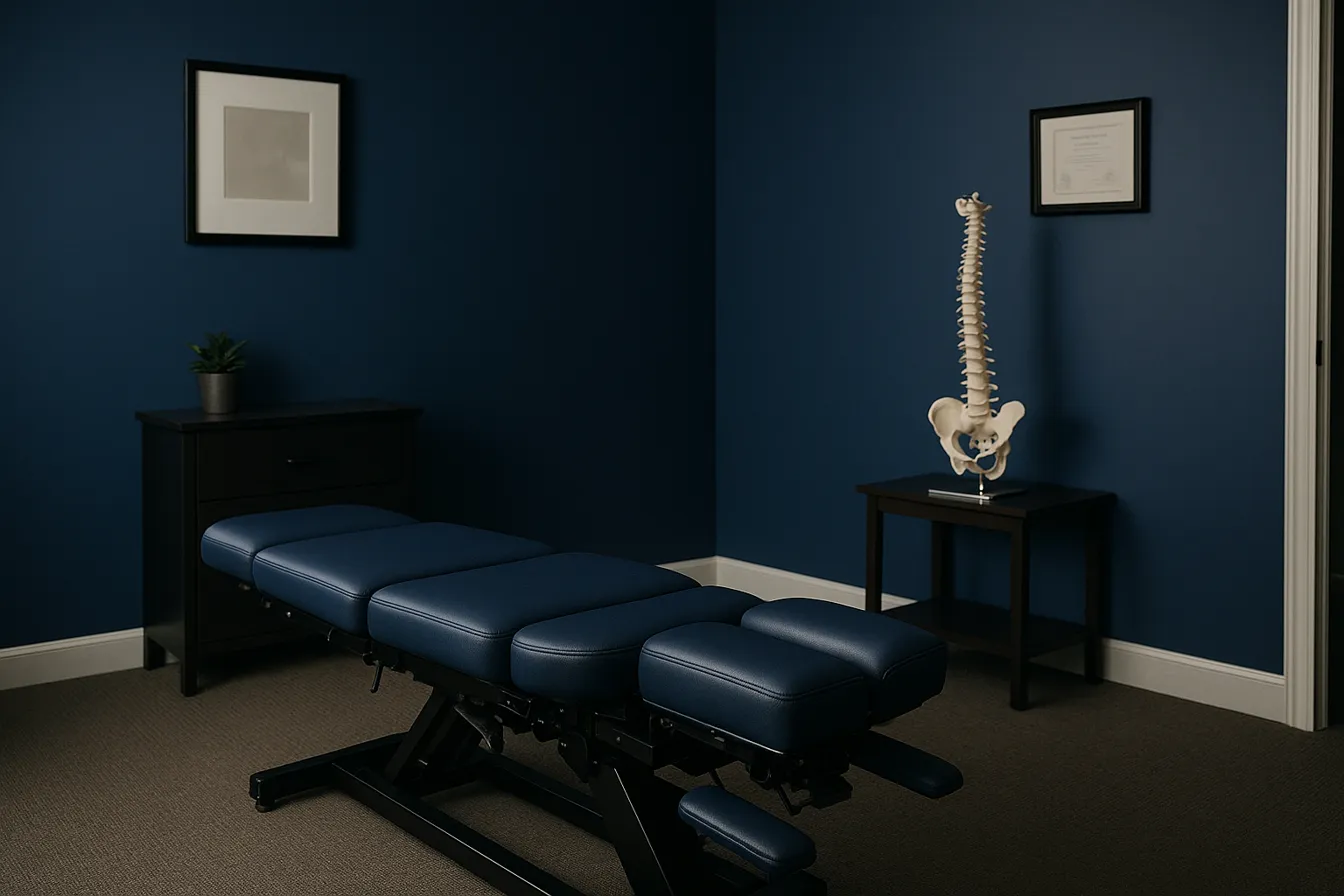
Lifestyle Changes to Maintain a Healthy Spine and Reduce Back Pain
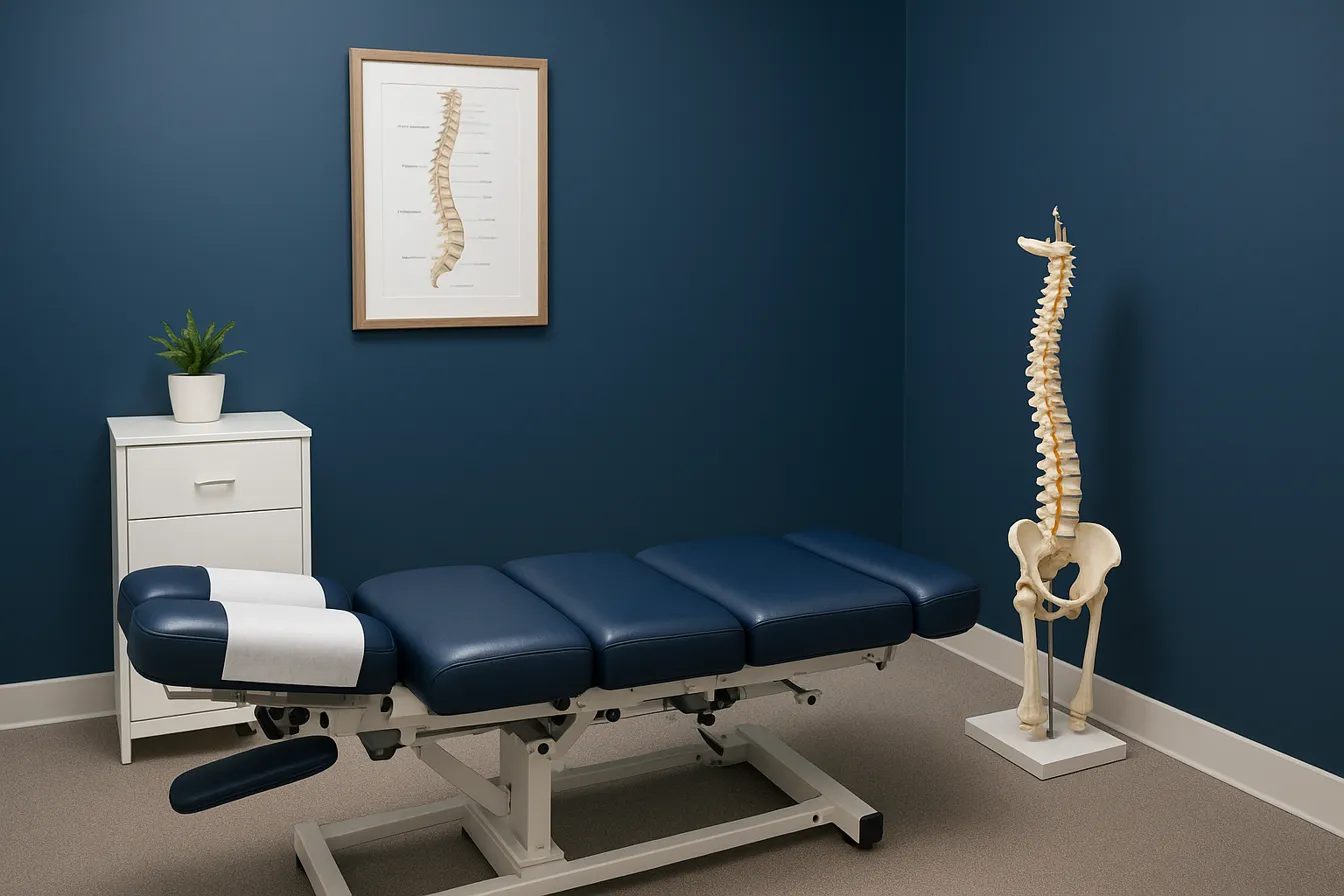
8 Things to Expect at Your First Chiropractic Visit
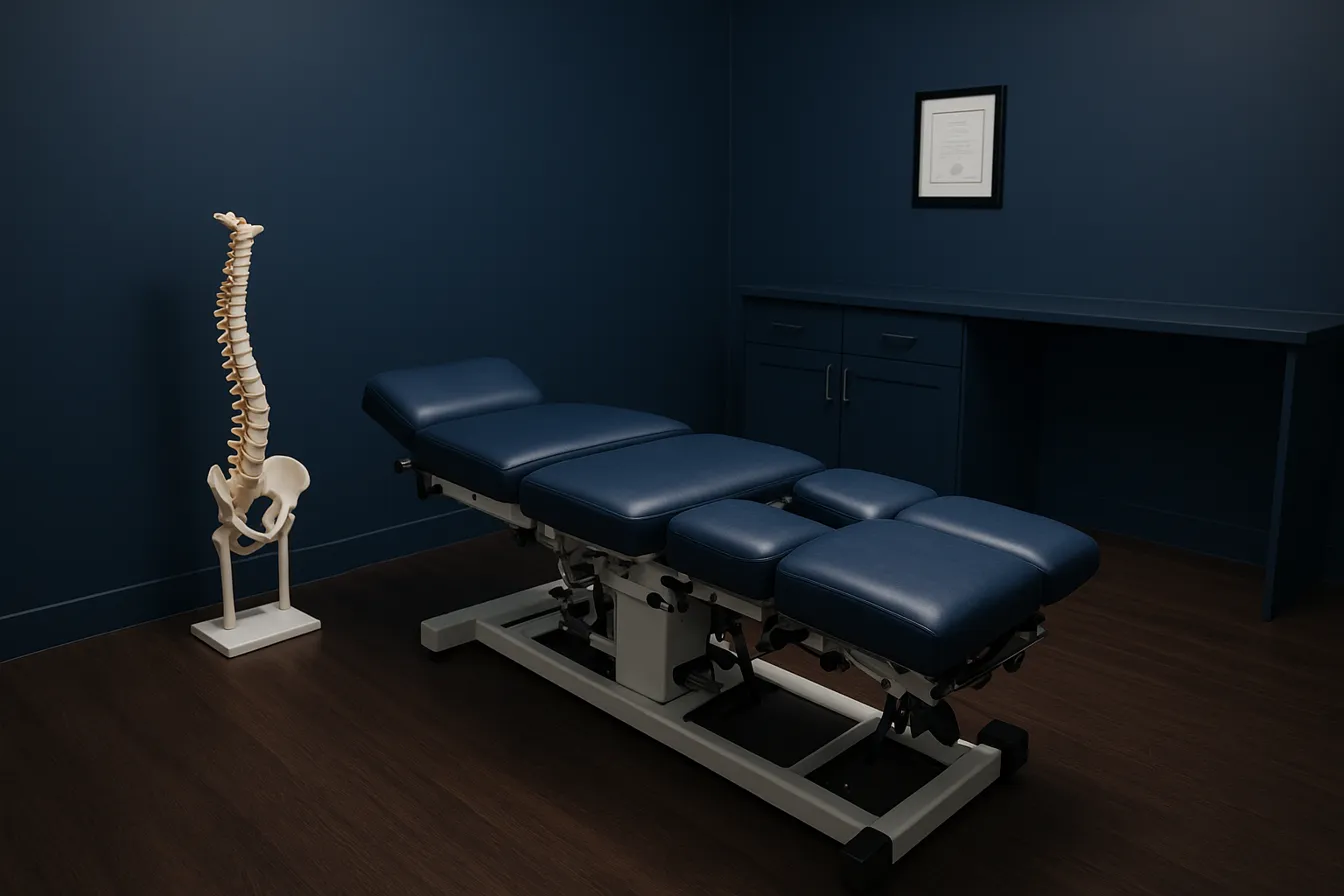
Combining Physiotherapy with Chiropractic Care for Optimal Back Pain Management

Choosing the Right Chiropractor: Expectations for Your Initial Visit
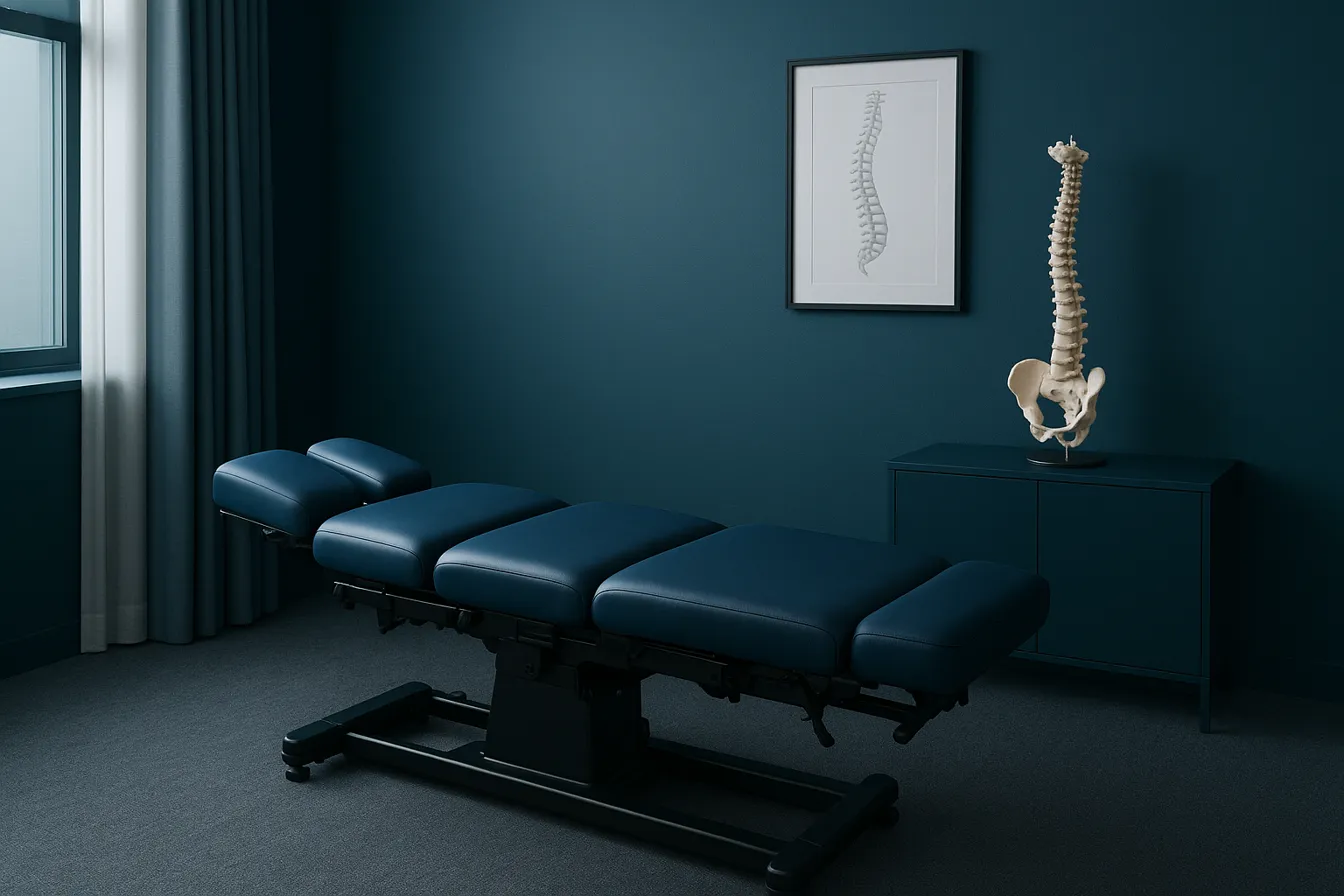
7 Inspiring Patient Testimonials That Highlight Chiropractic Success

10 Reasons Why Addressing the Root Cause of Pain is Essential

Inspiring Chiropractic Patient Testimonials and Their Healing Journeys

9 Nutritional Counseling Tips for Enhancing Overall Wellness

Understanding the Importance of Root Cause Analysis in Pain Management

Addressing Pain at Its Source: The Importance of Root Cause Treatment

Lifestyle Advice for Back Pain Prevention and Spinal Care
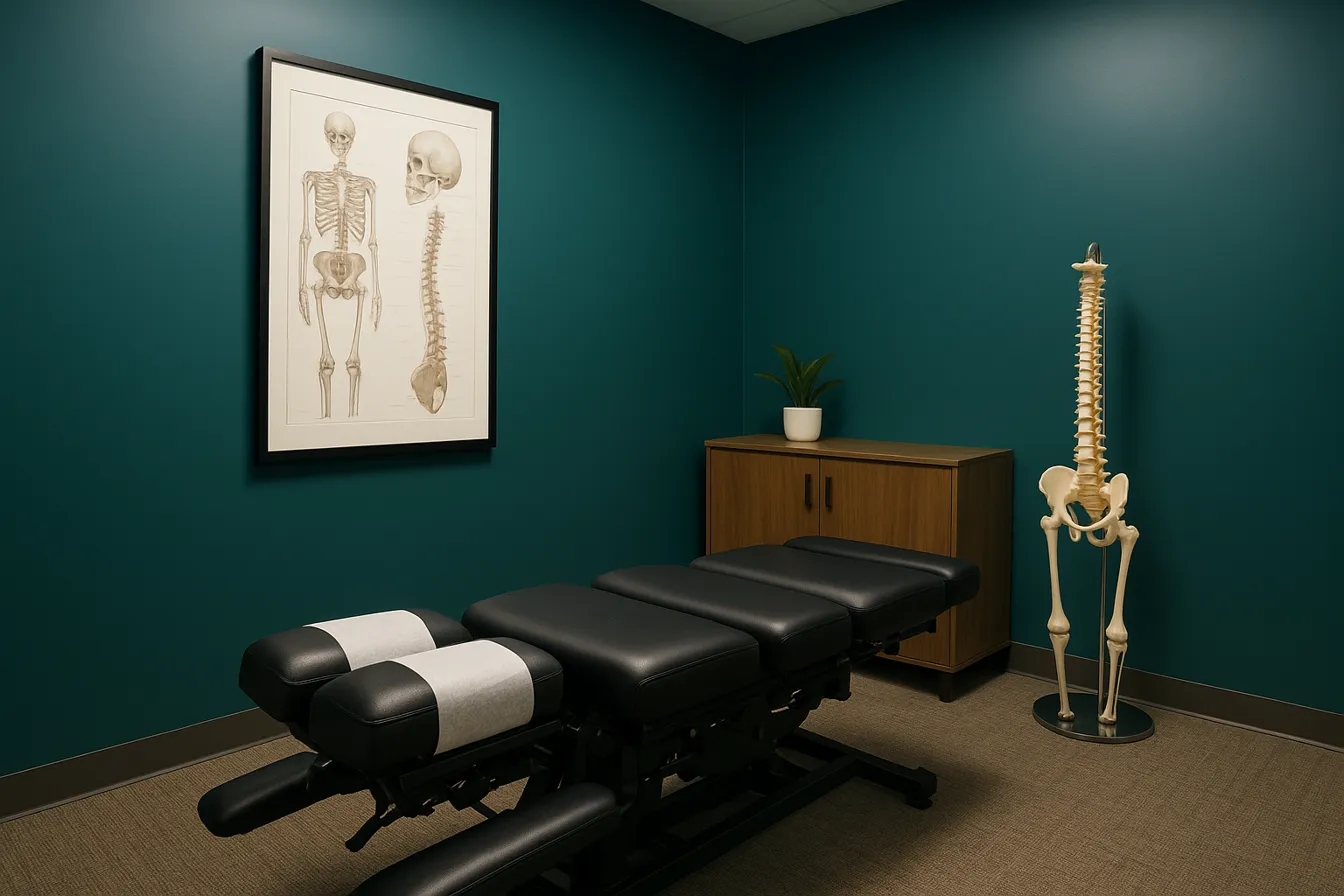
Combining Physiotherapy and Chiropractic for Enhanced Recovery
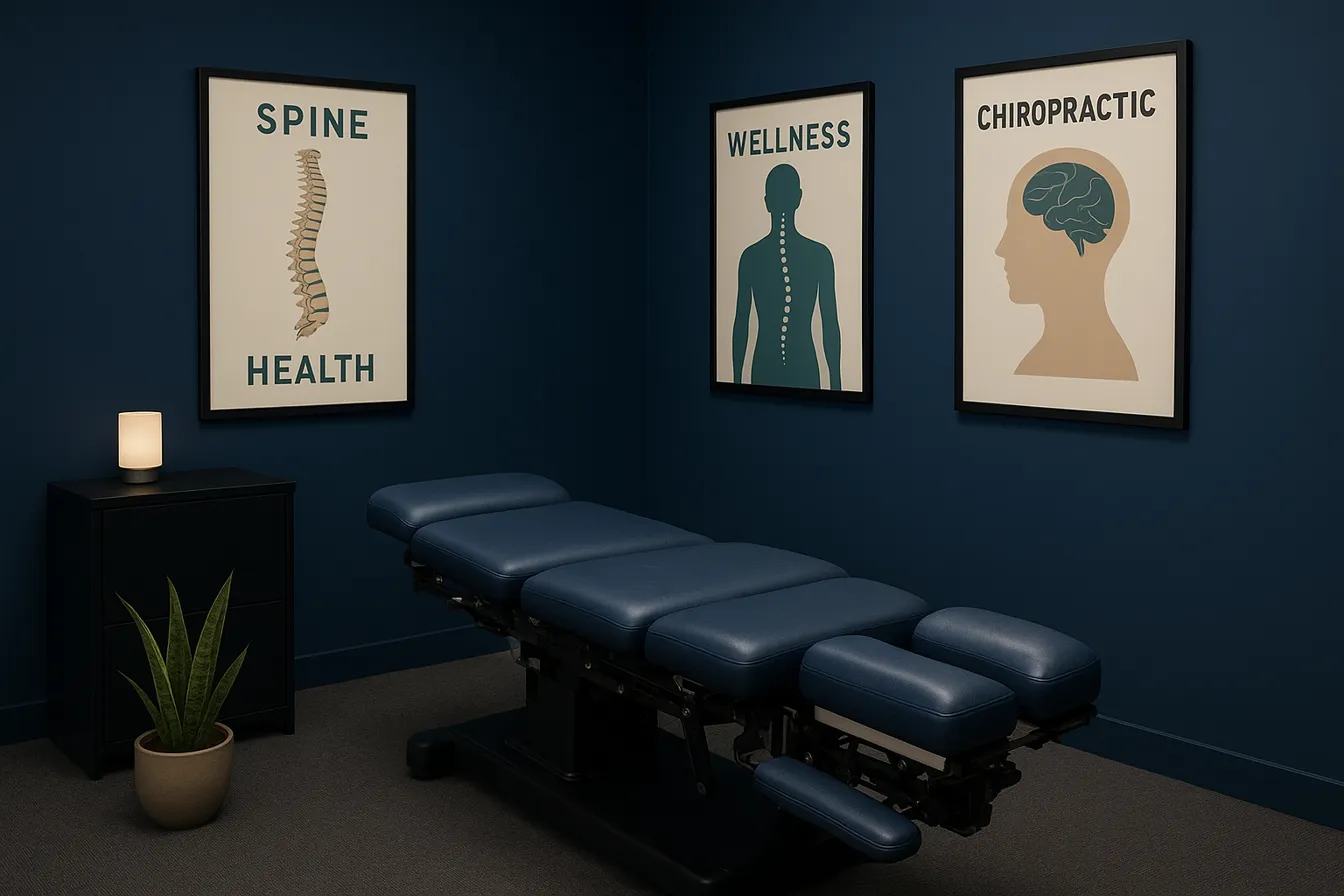
Preparing for Your First Chiropractor Appointment: What You Should Know

Corrective Exercises to Strengthen Your Back and Prevent Pain

How Treating the Root Cause Can Prevent Chronic Back Pain Recurrence
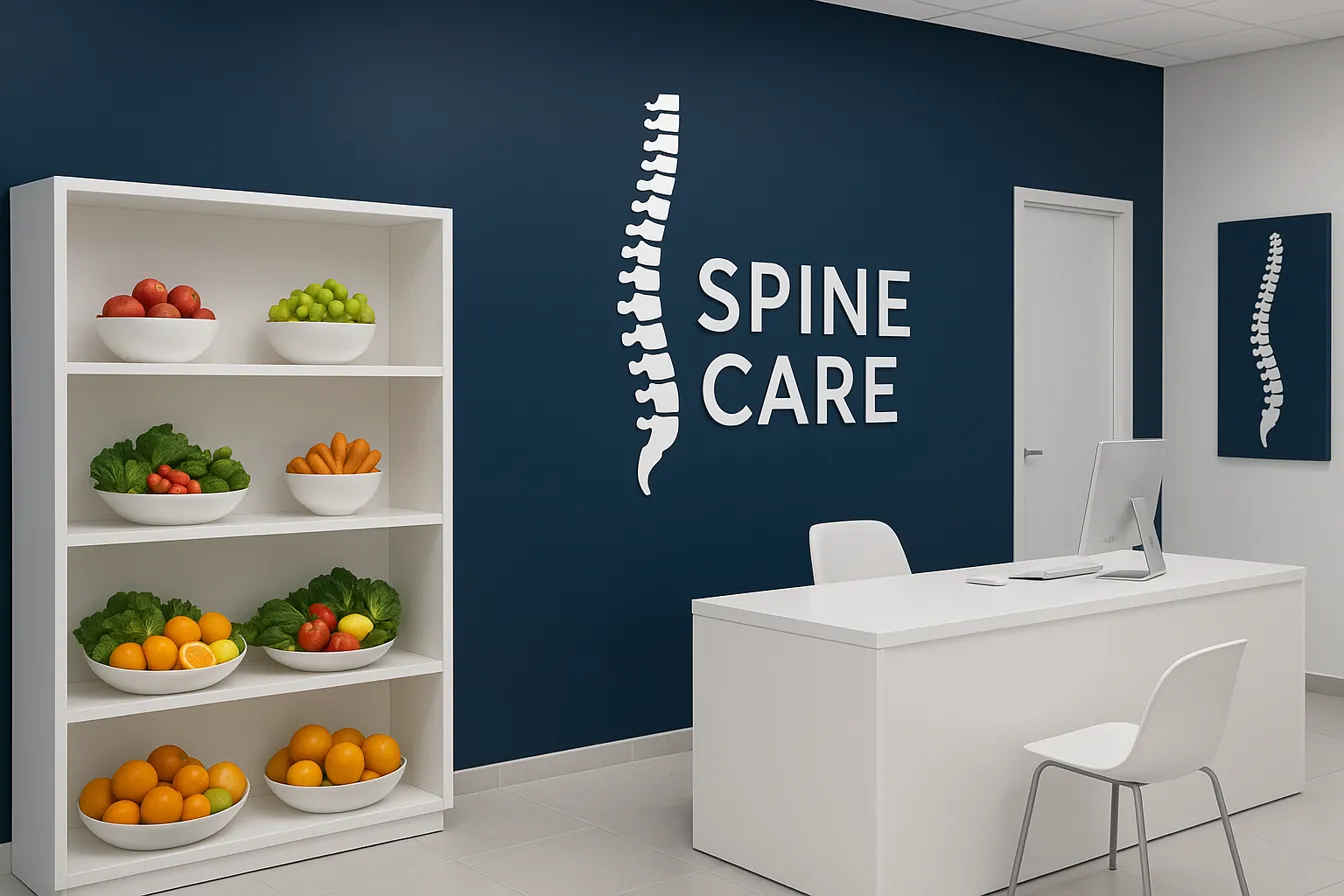
The Role of Nutrition in Supporting a Healthy Spine

Nutritional Counseling Tips to Enhance Spinal Health and Wellness

Practical Lifestyle Advice for Maintaining Spinal Alignment and Health
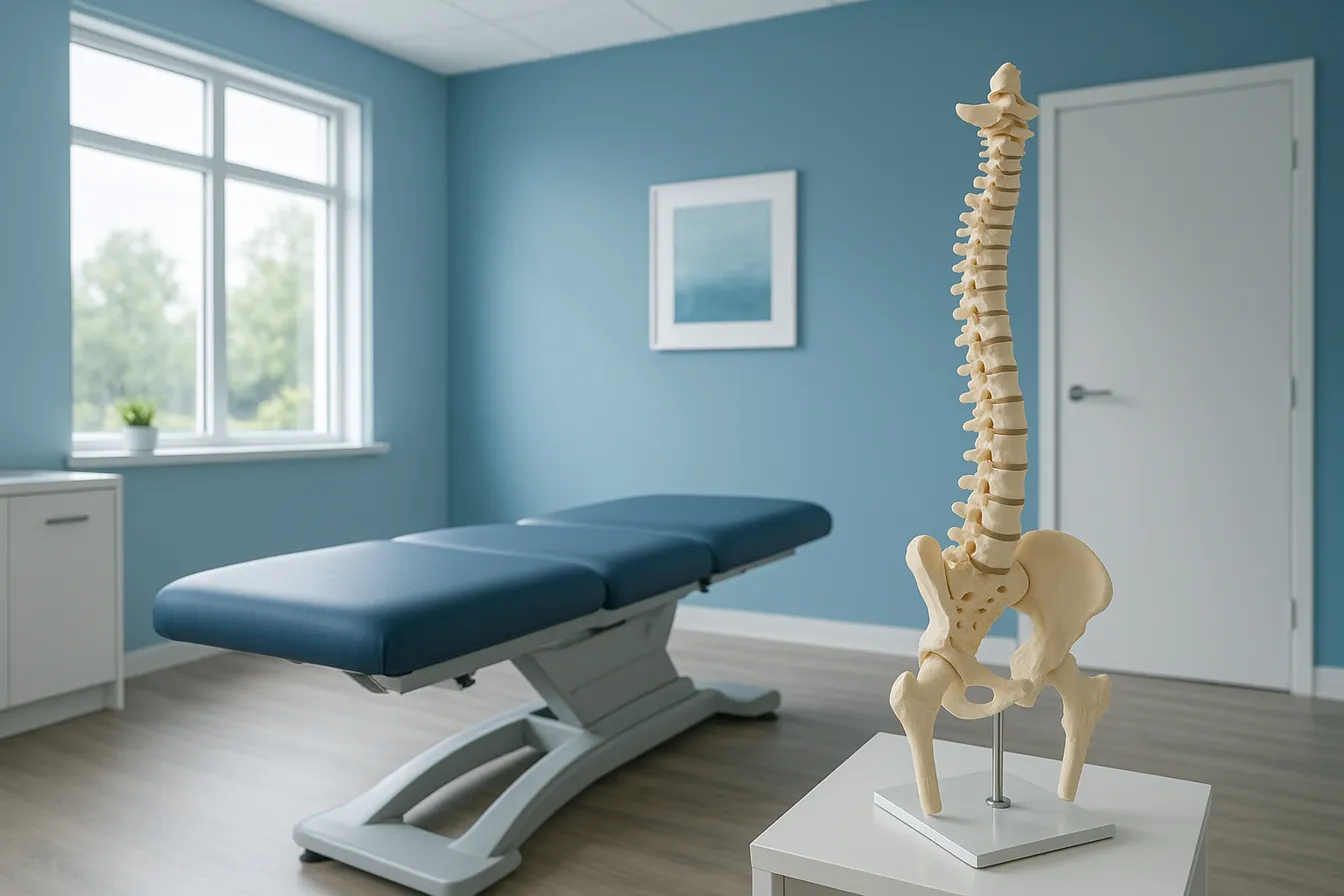
Chiropractic Care: Key Benefits for Managing and Preventing Back Pain

Corrective Exercises That Support Long-Term Relief from Sciatica

Chiropractic Methods That Provide Lasting Relief from Back Pain

Understanding Spinal Decompression and Its Benefits for Sciatica

Real Patient Testimonials: Success Stories in Chiropractic Care

Top Questions to Ask Your Chiropractor During Your Initial Visit

Physiotherapy's Role in Supporting Chiropractic Treatment Plans

The Role of Diet and Nutrition in Enhancing Wellness and Chiropractic Care

Inspiring Patient Testimonials Highlighting Chiropractic Success

Chiropractic Care: A Natural Solution for Back Pain Relief

Amazing Patient Success Stories in Chiropractic Wellness

Combining Physiotherapy and Chiropractic for Optimal Healing

Spinal Decompression Therapy: A Breakthrough for Sciatica Sufferers

5 Holistic Treatments That Complement Chiropractic Care

How Physiotherapy Supports and Enhances Chiropractic Treatment

Root Cause Versus Symptom Treatment: Making the Right Choice

7 Essential Things to Know Before Choosing Your Chiropractor

Why Addressing Root Causes of Pain Matters More Than Just Symptoms

Nutritional Counseling Strategies to Boost Your Overall Wellness

How Spinal Decompression Therapy Alleviates Sciatic Nerve Pain

Long-Term Pain Relief Through Targeted Corrective Exercises

10 Benefits of Integrating Physiotherapy with Chiropractic Treatments

Corrective Exercises That Help Prevent Recurring Pain

8 Corrective Exercises Proven for Lasting Pain Relief

Lifestyle Habits for Maintaining a Healthy Spine

What You Will Experience at Your Initial Chiropractic Visit

What Happens at Your First Visit to a Chiropractor?

